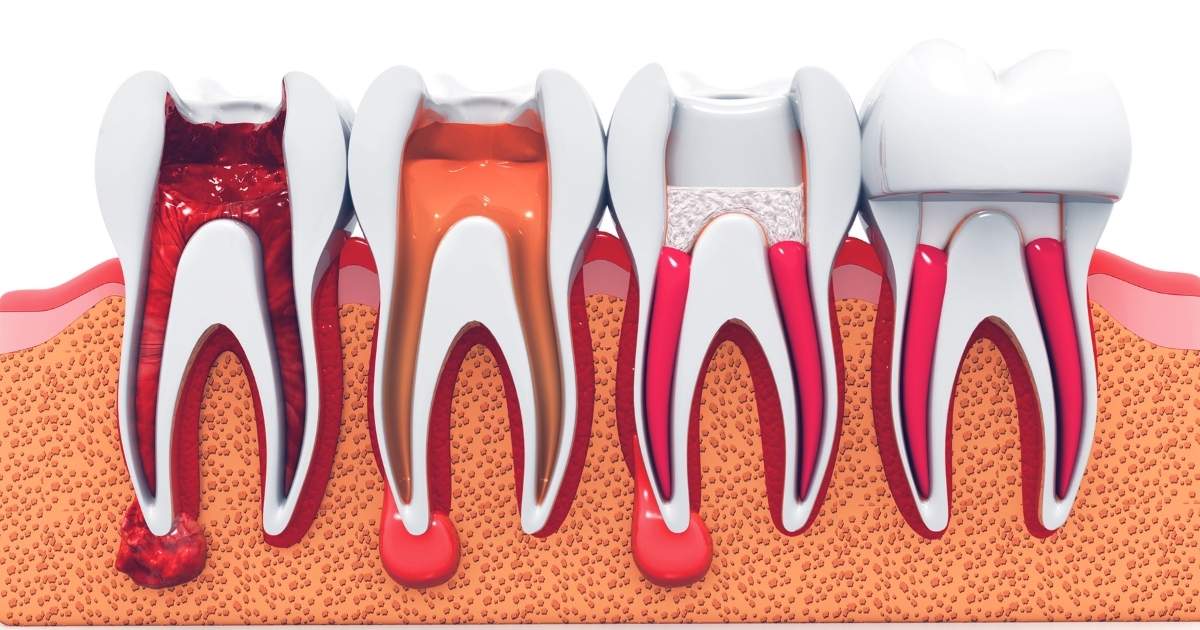5 Signs You May Need a Root Canal

Root canals might sound intimidating, but they’re actually a common and effective way to save a damaged tooth and stop the pain. In fact, it’s not unusual for us to treat at least one root canal a day. Knowing the warning signs can help you take action early, saving your tooth and avoiding bigger dental problems. Let’s break down the top signs of a root canal to watch for:
Persistent Tooth Pain
Is tooth pain messing with your day? Persistent pain that doesn’t go away, especially when eating, biting, or applying pressure, could indicate serious issues like deep decay, a cavity, or an infection in the tooth’s pulp. This pain may worsen at night and even radiate to your jaw or other teeth, making it hard to pinpoint the exact source. Tooth pain rarely resolves itself, so seeing a dentist quickly can prevent further damage or complications.
Sensitivity to Hot and Cold
Does your tooth ache when you sip hot coffee or enjoy an ice-cold drink? Sensitivity that lingers even after you’re done could mean damage to the blood vessels or nerves inside the tooth. Use a toothpaste designed for sensitivity and avoid extreme temperatures in food or drinks, but don’t delay seeking professional advice if the issue persists.
Swollen or Tender Gums
Notice swelling or tenderness near a tooth? This could indicate an infection spreading from the tooth’s pulp into the surrounding gum tissue. An abscess or infection requires professional treatment to prevent it from spreading further. Your dentist may prescribe antibiotics as part of your care.
Tooth Discoloration
When a tooth turns gray or black, it’s often a sign that the pulp inside is damaged or dying due to trauma or infection. Maintain good oral hygiene and avoid habits like smoking or consuming staining foods like coffee and tea, but internal discoloration typically requires a root canal to address the underlying issue. Whitening won’t solve internal damage, so professional evaluation is key.
Chipped or Cracked Tooth
Did you chip or crack a tooth? Even tiny fractures can expose the inner layers of the tooth to bacteria, allowing infection to develop. Avoid chewing on hard objects, and use a mouthguard if you grind your teeth at night (bruxism). Prompt dental treatment can repair cracks and prevent them from worsening, often avoiding the need for a root canal entirely.
What Is a Root Canal?
A root canal is a procedure that removes damaged or infected tissue from inside the tooth. The area is cleaned, filled, and sealed to prevent future problems. Thanks to modern techniques, root canals are usually painless and quite boring!
How to Prevent Root Canals
Stay ahead of dental problems with good oral hygiene:
- Brush twice a day using fluoride toothpaste.
- Floss daily to clean between teeth.
- Visit your dentist for regular check-ups and cleanings.
- Limit sugary and starchy snacks that can cause decay.
- Address dental issues, like small cavities or chips, before they become more serious.
- Wear a mouthguard during sports or if you grind your teeth at night.
If any of these signs sound familiar, don’t wait—see your dentist. Early treatment can save your tooth and keep you out of unwanted pain.




